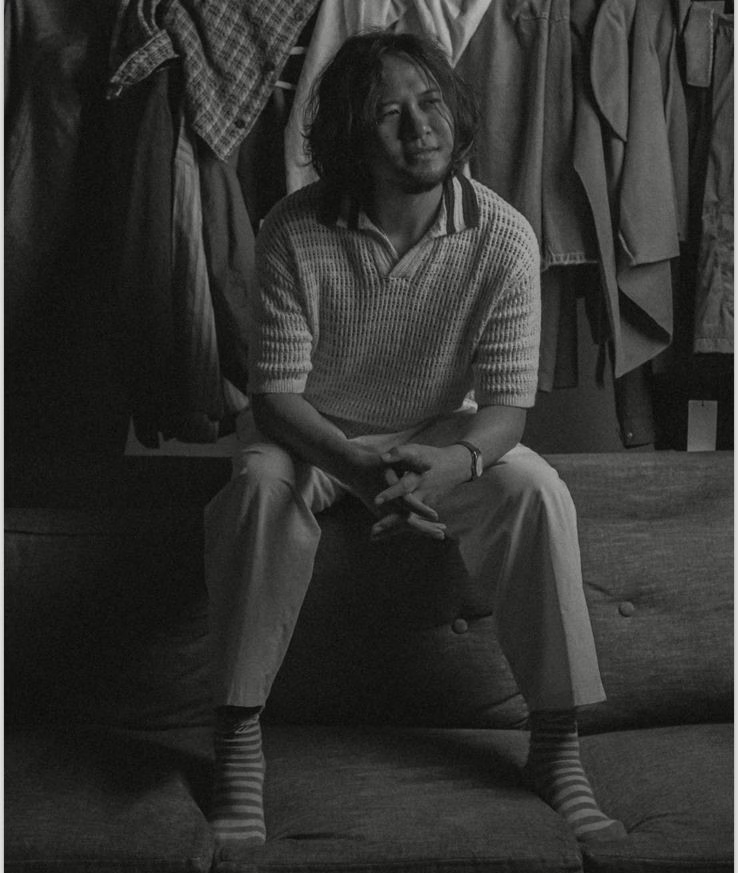Taba Chake, one of Arunachal Pradesh’s most celebrated voices, has carved out a unique space in India’s indie scene. A multi-instrumentalist, multilingual, and genre-bending artist, he rose to fame in 2019 with his debut album “Bombay Dreams”. Since then, he has built a loyal following of over 100K listeners on Instagram and is currently on a world tour as we dive into his much-anticipated second album, “Khud Ko Miloon”.
As the name suggests, the album is a journey inward. It talks about rediscovering yourself and tuning out the endless noise of the outside world. Taba’s music is rooted in the calming spirit of the hills and forests he grew up around, and he never confines himself to one language. Singing in Nyishi (his tribal dialect), Hindi, and English, he brings a cultural richness that few others attempt.
Khud Ko Miloon is a 13-track album that invites you to slow down, listen closely, and reconnect with your true self. Expect poetic lyricism, immersive soundscapes, and melodies that drift toward the spiritual, reminding us where true healing happens. Let’s dive into what each track has to say.

The album opens with “Jee Le,” a track that feels like sunlight breaking through clouds. It begins with easy guitar strums and builds into an upbeat, almost spiritual sense of calm. The lyrics are written in both Hindi and English. It’s light, poetic and urges you to love your life no matter the ups and downs. Taba’s voice carries a soothing weight, while the bass and drums stay just enough to make you feel uplifted.
“Suno Dil Ko” starts with light, breezy melodies and lyrics that are both poetic and direct. The bass line is subtle but striking, grounding the song as it asks you to step back from the rush and slow down. It’s catchy without losing depth, soothing without fading into the background. The production is rich and every layer is placed with intent. Then, midway through, it slips into a jazzy vibe, opening into something almost anthem-like.
“Khud Ko Miloon” slows things down into a mellow search for the self. The arrangement has an easy sway, the kind that gets your head nodding without you noticing. It feels effortless, almost like air, with gentle humming that hits home. Taba layers sounds in ways that blur genres, echoing the restless play of the mind. By the second half, the song blooms with a sudden lightness before quietly fading, leaving you in that same space of reflection it set out to capture.
“Tu Hai Kahaan,” the fourth track, begins with soft humming before Taba’s signature fingerstyle guitar takes over. It’s a song about being lost, wrapped in a quiet, ponderous mood. The composition is atmospheric, almost like a companion for moments of solitude. There’s a stillness running through it, carried by vocals that stand out in their spiritual weight. “Tu hai kahaan, tanhai cha rahi hai” captures it perfectly, and towards the second half, this breezy self-muse slowly fades, leaving behind something tender and searching.
The fifth track, “Kya Ho Agar,” is a gentle inquiry into the self and the world around us—uncertain, curious, and quietly joyful. Taba’s vocals are just amazing and the breezy melodies make you feel like you’re on vacation, lost in reflection. Midway, the song shifts with layered guitars and drums that lean into a subtle alt-rock texture. This closes the first part of the album, followed by an interlude where you’ll hear Taba’s signature fingerstyle. It’s precise, soothing and just perfectly placed in the album.
Listen to the seventh track “Mushkil Hai Jeena” when you are alone in the evenings and probably thinking about the love of your life. Taba poetically conveys how it is like to live without “you”. The vocals are soft and the variations touch you to the core.

The next three tracks are raw versions of the previous tracks “Jee Le,” “Khud Ko Miloon,” and “Kya Ho Agar.” It’s impossible to skip. You hear the songs in a different way, with every nuance coming through. The humming is soulful, the melodies effortless, and “Kya Ho Agar” in particular stood out for me.
The eleventh track “Andheron Mein” opens with Taba’s crisp voice, set against mellow drums. It captures the mood of slow, lingering evenings, weaving together layered sounds to express love. In this song, he pleads to his lover/himself asking not to be left alone in the dark alleys of helplessness. Wait until you hear the piano towards the end, it’s simply magical!
The twelfth track, “Whispers in English” is the album’s second interlude and a showcase of Taba’s signature fingerpicking style. His guitar work feels effortless, with notes spilling out seamlessly before we move to the final track “La La Land”. It carries a low-key, poetic, almost Christmas-song vibe. The song is in English and its rhythm feels instantly familiar. Bright and celebratory, it evokes a sense of community and shared joy.
You leave the album feeling lighter, as if all the weight has quietly lifted. Taba has kept it simple and even when the music does wander into layered territory, Taba makes it feel effortless and seamless. That’s his real genius. Some might find the pace unhurried, but if you’re from the mountains or the outskirts of a city, you’ll totally relate to this. The music reminds you that it’s okay to simply be in flow, rooted in your natural rhythm, rather than being caught up in the constant humdrum of the world.





























